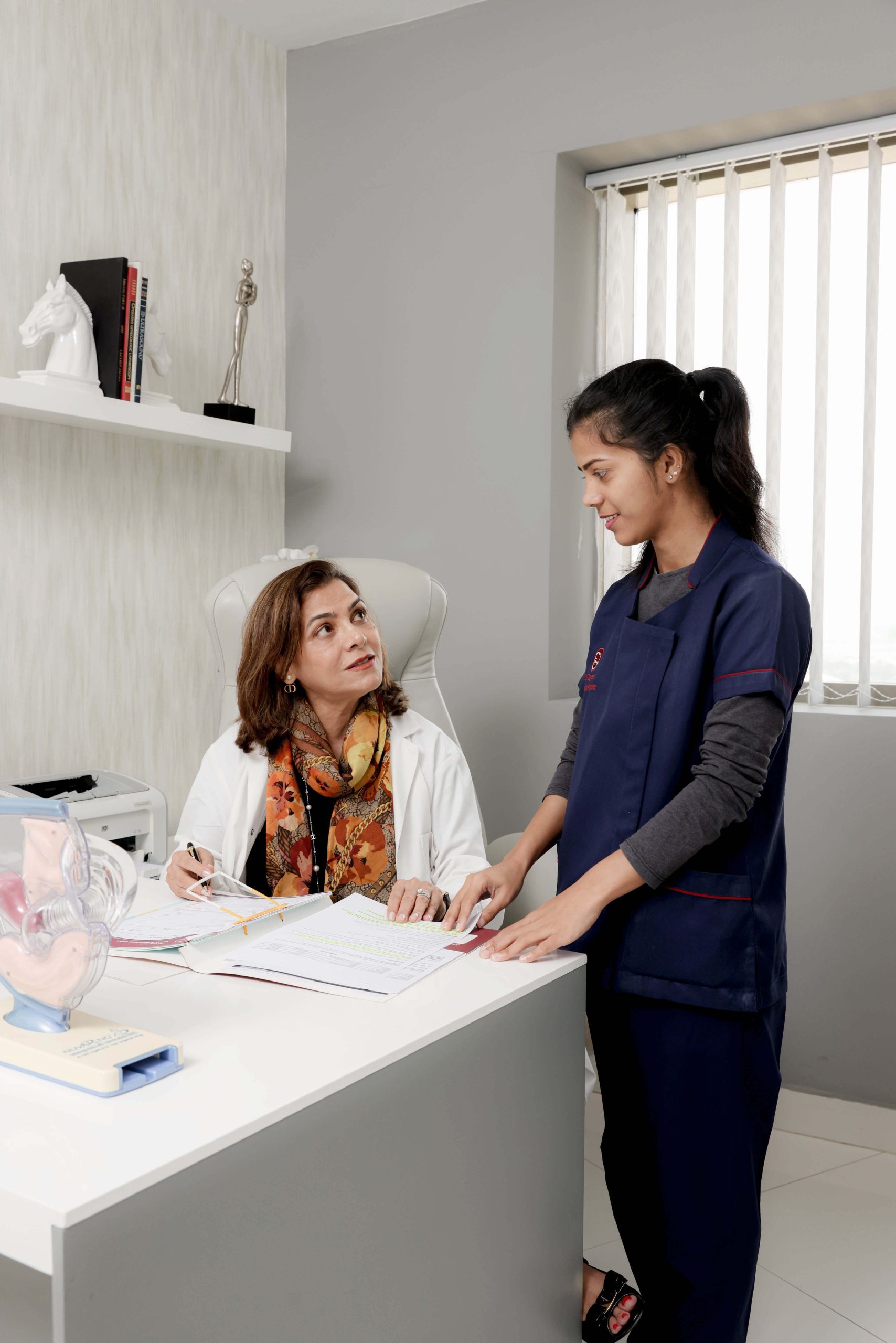
Polycystic ovary syndrome (PCOS) is a common hormonal disorder that affects millions of women worldwide, characterized by irregular menstrual cycles, hormonal imbalances, and multiple cysts on the ovaries. The goals of treatment for PCOS aim to address the underlying hormonal imbalances, manage symptoms, and reduce the risk of long-term complications. Here’s a closer look at the key objectives of PCOS treatment in Dubai:
Regulate menstrual cycles:
One of the primary goals of PCOS treatment is to regulate menstrual cycles and restore ovulation. Irregular or absent menstrual periods are common symptoms of PCOS, resulting from hormonal imbalances and disrupted ovarian function. Hormonal medications such as birth control pills, progestins, or hormonal contraceptives can help regulate menstrual cycles, induce regular periods, and reduce the risk of endometrial hyperplasia (thickening of the uterine lining) and endometrial cancer.
Control hormonal imbalances:
PCOS is associated with elevated levels of androgens (male hormones) such as testosterone, which can lead to symptoms such as acne, hirsutism (excessive hair growth), and male-pattern baldness. Treatment aims to control hormonal imbalances by suppressing androgen production and reducing symptoms. Oral contraceptives containing estrogen and progestin, anti-androgen medications such as spironolactone and insulin-sensitizing drugs like metformin are commonly prescribed to help manage hormonal fluctuations and alleviate symptoms.
Promote ovulation and fertility:
Many women with PCOS experience infertility or difficulty conceiving due to irregular ovulation or anovulation (lack of ovulation). Treatment strategies for promoting ovulation and improving fertility may include lifestyle modifications, ovulation induction medications such as clomiphene citrate or letrozole, and assisted reproductive technologies (ART) such as in vitro fertilization (IVF) or intrauterine insemination (IUI). By restoring regular ovulation, women with PCOS can increase their chances of conceiving and achieving a healthy pregnancy.
Manage symptoms:
PCOS can cause a wide range of symptoms that vary from woman to woman, including acne, hirsutism, hair loss, weight gain, and mood changes. Treatment aims to manage these symptoms and improve quality of life through a combination of lifestyle modifications, medications, and targeted interventions. For example, topical or oral medications may be prescribed to treat acne, while cosmetic procedures such as laser hair removal or electrolysis can help manage hirsutism. Additionally, dietary changes, exercise, and weight management strategies can help improve insulin sensitivity, reduce androgen levels, and alleviate symptoms such as weight gain and metabolic disturbances.

